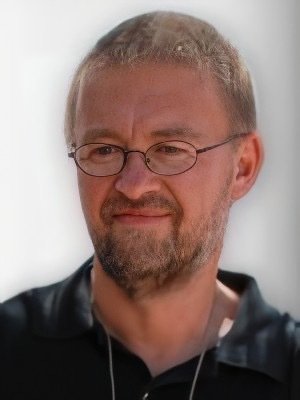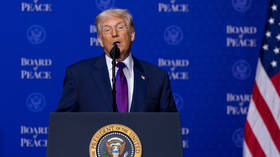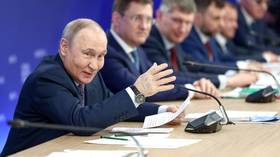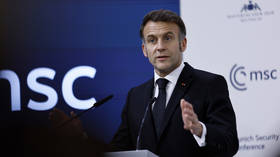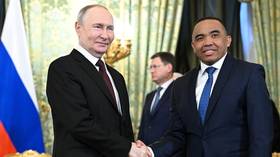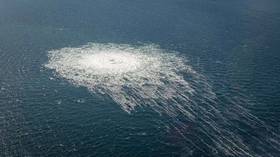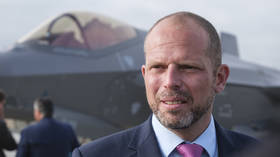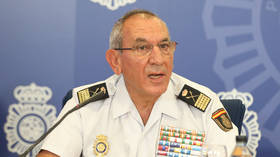Uganda: Breaking the media blackout
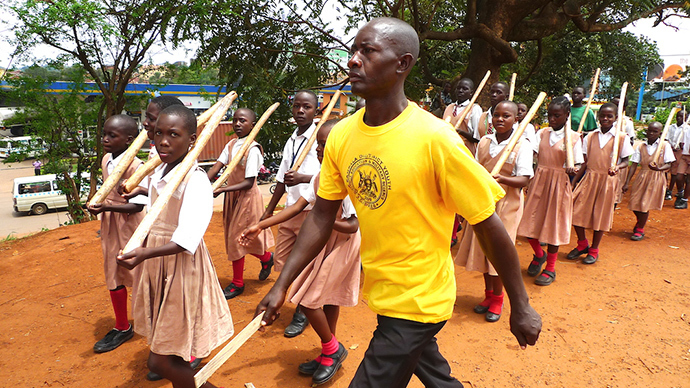
Uganda, Rwanda and Kenya are becoming truly and increasingly unpleasant countries, dangerous to work in, or even to visit.
Of course not if you are a foreign trader in diamonds or uranium, or if you are a military attaché from a friendly Western country, or from Israel… But if you are an independent investigative journalist, or even a UN official that criticizes, your life is patently at risk.
I am walking down the street, in the middle of Kampala, with my Ugandan friends. Suddenly, one of them stops, then points at a tall man walking in the opposite direction, on the other side of the street:
“Look at him… That is a Kenyan intelligence agent…” He gives his name. “He used to be so thin, you know… He has AIDS. But they gave him all sorts of drugs so now he is as huge as a mountain again. He does a lot of killing here, also torturing. He tortured some of our people, from the opposition. They bring Kenyans here to do this kind of job, as they have no emotional attachment to this country; no personal links…”
In front of the entrance to the State House, I try to photograph heavy concrete blocks, guardhouses and soldiers. I use a small Leica, but in just a few seconds I am surrounded by soldiers, one of them is clearly from neighboring Rwanda.
This is my, perhaps, 25th visit to Uganda, and I feel suddenly exhausted. I don’t want to argue, to play tricks with the camera, or present some official documents in order to get myself out of this situation. I simply show them the image, and then calmly delete it. My friends are from the opposition. I don’t want any trouble. I worry about them more than about some photo.
People say that intelligence agencies from the West and Israel are operating all over Kenya, especially towards the border with Somalia, near the historic city of Lamu. Recently on the high seas, several terrified fishermen told me (I hired a boat to investigate), that Kenyan patrol boats are operating, have been for quite some time, carrying Western soldiers on board, and that the local Muslim people get regularly kidnapped, interrogated, tortured… and that some even disappear.

There are British military bases in Kenya. There are countless and bizarre NGO’s operating in both Uganda and Rwanda. There are military folks, and those countless US military flights to and from Entebbe airport. And there are heavy trucks, transporting booty from the destroyed DRC to Ugandan airports and to the main Kenyan port of Mombasa.
Kenya is now occupying the southern part of Somalia. Uganda and Rwanda are plundering the Democratic Republic of Congo, which is full of highly priced raw materials like coltan and uranium. They are all untouchable, as they act on behalf of Western companies and governments. In the meantime, the number of corpses in the region is mounting, nearing some 10 million since 1995.
Both Uganda and Kenya are closely linked with that bizarre geopolitical entity called South Sudan, a country created by the joint neo-colonialist policies of North America and Europe – a country that became a failed state even before it was truly declared independent, and which is there only to serve the political and especially economic interests of the West.
‘Media blackout’
To legitimize it, there is an almost bulletproof media blackout – almost no reporting on the severity of the situation. Those few reports that make it to the mainly non-corporate media, immediately get attacked and smeared by the always vigilant and paid ‘bloggers’, who use smear tactics quite similar to those used against any objective reports on Venezuela, Russia, China or Ukraine, even Thailand.
While those abovementioned countries, plus many others such as Cuba, Zimbabwe, South Africa, Eritrea, and North Korea, are constantly bombarded by projectiles coming from Western mass media, the true rogues such as Uganda, Rwanda, Kenya, but also the many desperados (torturing and robbing their own people) like Indonesia and Philippines, are either glorified or at are least spared the most damaging criticism. It is because they are ready to sacrifice their own people (and people in neighboring countries) and to deliver them, together with all the riches, to the altar of the Western economic and political interests.
While the West manufactures ‘opposition’ wherever there is a
system that puts local people first, the most outrageous, even
grotesque dictatorships, like those in Uganda, enjoy unapologetic
support of the Empire.
It is easy to understand why.

Chris Lwanga, a senior political assistant to Presidential aspirant James Akena from the UPC (Uganda People’s Congress), explained to me where President Museveni (http://en.wikipedia.org/wiki/Yoweri_Museveni) comes from. We discussed it, frankly, over a few bottles of beer, in some backstreet bar of Kampala.
“The founding father of our Party and of our country, Dr. Milton Obote, was always at odds with the West. He also spoke out against the atrocities committed by Museveni’s troops, those that fought against Obote and Uganda as ‘rebels’. Dr. Obote always insisted that it was actually the West fighting against him, as the United States and Europe never forgave him for his decisive anti-imperialist stance. He was always accusing Museveni of being simply a tool of imperialism,” Akena told me.
Dr. Obote was an African stalwart of the anti-imperialism and anti-colonialism struggle of the 1960’s and 1970’s, a comrade and equal to such enormous personalities of Africa as Julius Nyerere, and Patrice Lumumba.
Then the next day I found myself sitting across the table from Mark Engena, a grandson of Milton Obote. I was listening to his heated speech, directed against one of the closest allies of the West in Africa.
“Museveni is destroying Uganda. He is taking away people’s land. Courts of law have lost all their meaning… Our education system has collapsed, and so, if you have no money for private schools, your kids will go uneducated… Government workers don’t get paid for months. Government hospitals get their water turned off, because, although they are ‘public’, the water companies are not – water has been privatized through an IMF scheme. After the water was recently been switched off, children went down with horrible diarrhea, but nobody here seems to care!”
All this, of course, does not matter to those in London and Washington, as Yoweri Museveni is supplying the West with all those precious raw materials extracted in the DRC. His soldiers are murdering and they are plundering. So is, of course, the Rwandan RPF, under the leadership of yet another great Western ally, President Paul Kagame. The only difference is that, while Kagame has blood all over his hands, he at least shares some of the booty from the Congo… He shares it with his own people, while Museveni and his military are corrupt to the extreme, and stubbornly unwilling to share.
Of course both Kagame and Museveni are old allies and pals. The United States, as confirmed in my documentary film “Rwanda Gambit” by former US Ambassador to Rwanda, Robert Flatten, was arming Kagame’s Tutsi RPF before the genocide of 1994. And Paul Kagame was then based in Uganda, serving as the intelligence head of the Ugandan military, allegedly torturing and murdering members of the anti-Museveni opposition.

From Ugandan soil and with the full knowledge and support of Mr Museveni, the RPF and Kagame were launching savage attacks against Rwanda. These attacks helped to divide Rwandan society, they aggravated the divide between Hutus and Tutsis; a divide which finally led to the 1994 outburst of violence.
‘Trusted military’
The Ugandan military is so trusted by the West, that it is allowed to serve in the most sensitive ‘peace missions’, including those in Somalia.
And whenever the UN (or some brave individuals inside the UN) or others accuse Uganda (and Rwanda) of committing genocide in the Democratic Republic of Congo (DRC), the West immediately comes to the rescue of both of its brutal but obedient allies.
As the BBC reported “A UN report into the killings of Hutu civilians in the Democratic Republic of Congo during the 1990s says they may constitute "crimes of genocide… It accuses Rwandan, Ugandan and Burundian forces of participating in the attacks, and recommends that the international community seeks to prosecute those responsible…”
There are other reports, accusing Uganda and Rwanda of the most atrocious crimes against humanity, still being committed until this day. All of them made irrelevant by Western mass media and the establishment.
The ‘involvement’ of Rwanda and Uganda in DR Congo is, of course, well documented, in the 2010 "UN Mapping Report" and in the conclusions of other investigations. But after the UN “Mapping Report” went to print, Mr. Museveni allegedly got very angry, which was enough to force the UN Secretary General Ban Ki-moon to fly to Kampala to shamefully beg the dictator not to abandon UN peacekeeping missions!
“Both Rwanda and Uganda are plundering DR Congo, killing millions. Museveni admitted it, Kagame never has. But both regimes are dictatorial, with close links to the West. And the Western public is unaware of what is happening,” explained Nii Akuetteh, a Ghanaian political analyst, during our meeting in Washington.
That is not all. Ugandan citizens, including those who used to serve in the Ugandan military, even in the DRC, are freely recruited and employed by US security companies, and allowed to serve inside the US army and air force bases in both Afghanistan and Iraq.
On the way to Entebbe International Airport, my driver, Mugonza Esmile, recalled how he served for 3 years at the Balad US air force base in Iraq:
“On our air force base alone, there were 1700 Ugandans, working as security people, and drivers. I was a driver… All over Iraq, there were thousands more. We were recruited here in Uganda, most of us by private companies like Drashak from Dubai. Then, we were ‘handled’ by a company based in the United States – called ‘SOC’ (“Secure Our Country”). On the base, there were people belonging to other nations, but only the US, Ugandan and UK personnel were allowed to carry guns. Yes, it is clear that the relations between Washington, London and Kampala have been wonderful.”

“Before we were deployed, Americans checked everything: our age, mental health, and also the way we were thinking… Among us, there were former Ugandan soldiers who fought in the Democratic Republic of Congo… You see, it is actually one tremendous business – Ugandans working in Iraq and Afghanistan… There are many private security companies employing Ugandans.”
I asked Mr. Mugonza whether he ever had some second thoughts; whether he was questioning the morality of serving in occupied and thoroughly destroyed Iraq?
“No”, he replied without any hesitation. “The only regret I had was that the Obama administration began cutting funds. At the beginning we were getting paid some 800 dollars a month… Later it was only 500 dollars… And our recruiting company, as well as the Ugandan government, were taking substantial cuts…”
Military actions, deployment, plundering – it was all huge business. And what mattered the most, was the US$300 cut.
‘Hidden weapon’
Uganda is a mess. A brutal civil war raged in the north of the country. There, according to countless reports, HIV-positive military men were ordered, periodically, to rape rebellious soldiers and insurgents [In 2006 Uganda barred HIV positive soldiers from some military training programs – RT]. Mr. Museveni hates gays, and he occasionally threatens them with capital punishment just for being what they are. But homosexual rape, many say, is something he approves of.
Arthur Tewungwa, Ugandan opposition figure and political analyst,
recently shared his thoughts with me:
“When the war began, lots of men were sodomized by the
military… These were men and boys, who were just villagers from
the North; belonging to the Acholi tribe. Recently, the Refugee
Law Project, an NGO, took on their cases: 240 cases… These are
actually cases of people who were willing to come forward,
despite the stigma that is attached… Lots of soldiers were
HIV-positive, and it appears that it was actually the strategy,
to send HIV soldiers to the North.”
The same allegations were made about Museveni and his involvement in the DRC, where Ugandan soldiers who were HIV-positive, were sent and where they committed sexual crimes and atrocities. In Uganda, crimes were committed mostly against men, in DRC, against both men and women.
The President admitted that his soldiers committed atrocities, at
the recent rally commemorating 28 years of his rule.
Mr. Tewungwa continues:
“More seasoned observers, meaning those that know Museveni, are not fooled. His own former chief of intelligence Joseph Kony, and commander of the fighting troops General David Sejusa, made a speech in London, in which he all but admits to atrocities carried out by government soldiers there: “I exposed Mr Museveni’s problems and atrocities; you can go [and check], you know what happened in parliament, against the atrocities in the north and the prolonging of the northern war by Mr Museveni. I was the first to bring it up.” These atrocities highlight the hypocrisy that surrounds the current debate surrounding the anti-homosexuality bill. Rape was used as a weapon of war and men were also sodomized. The Refugee Law Project has the testimonies of those courageous enough to admit to being sodomized. I use the word “courageous”, not in the context of stigmatization as those that pander to the myth of homosexuality being alien to Africa, but in the context of real genuine fear of retribution by the state for exposing its methods of warfare.”

In Uganda now, it appears that everything is for sale. Corruption, both moral and financial, is the main engine that propels the country: not forward, but in bizarre circles. Museveni, the military and the Christians (including some of the most bizarre, mainly Protestant cults) are in the driving seat, but the West is firmly behind this grotesque and brutal dictatorship, which is making even the rule of Idi Amin Dada look like some mildly deranged version of a Scandinavian democracy.
“The social situation in Uganda is terrible and continuously deteriorating”, explained Mr. Kaliija James Kats, Program Manager of YLF Uganda. “People are at the edge.”
They are, but often they turn against each other, instead of against the powers behind their troubles.
The West needs the natural resources of DRC and South Sudan. Therefore, it is paying for ‘Uganda’s stability’. It is paying everyone there; everyone who is promoting the West’s economic and geopolitical interests.
“The opposition, the civil society, the government – everybody is getting money from the West,” a young opposition writer and activist, Ms Doreen Nyanjura, told me, two years ago.
“Does it mean that whoever wins will be obliged to go to Washington and London for guidance?” I asked.
“This is a very poor country…” she replied.
Recently, she abandoned the opposition, and joined the ruling party, I was told.
In the meantime, heaps of corpses in DRC, South Sudan and Uganda are piling up to unbelievable heights - millions and millions of lost lives.
Both the West, and the United Nations are deeply involved in perhaps the worst ongoing genocide on the face of the earth. And the general public in developed countries is stubbornly pretending that it went blind.
The statements, views and opinions expressed in this column are solely those of the author and do not necessarily represent those of RT.
The statements, views and opinions expressed in this column are solely those of the author and do not necessarily represent those of RT.
